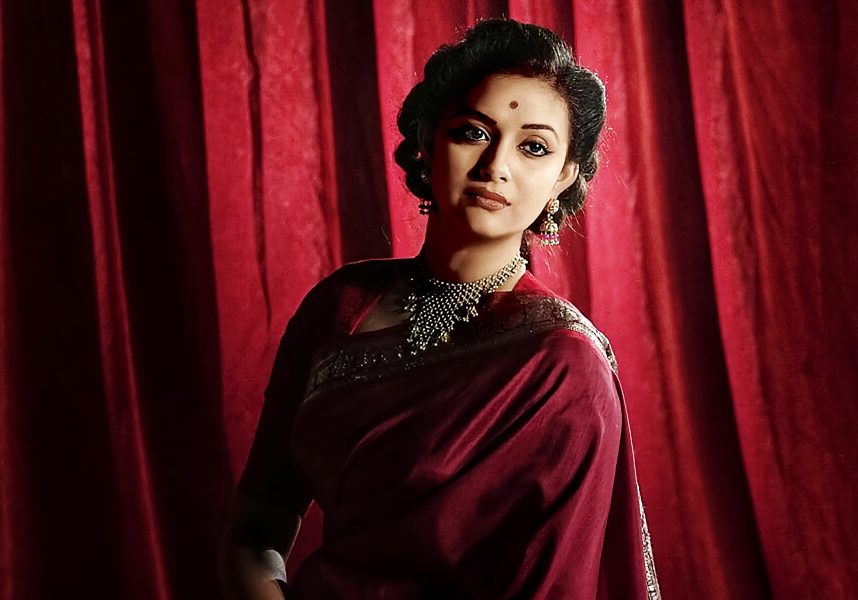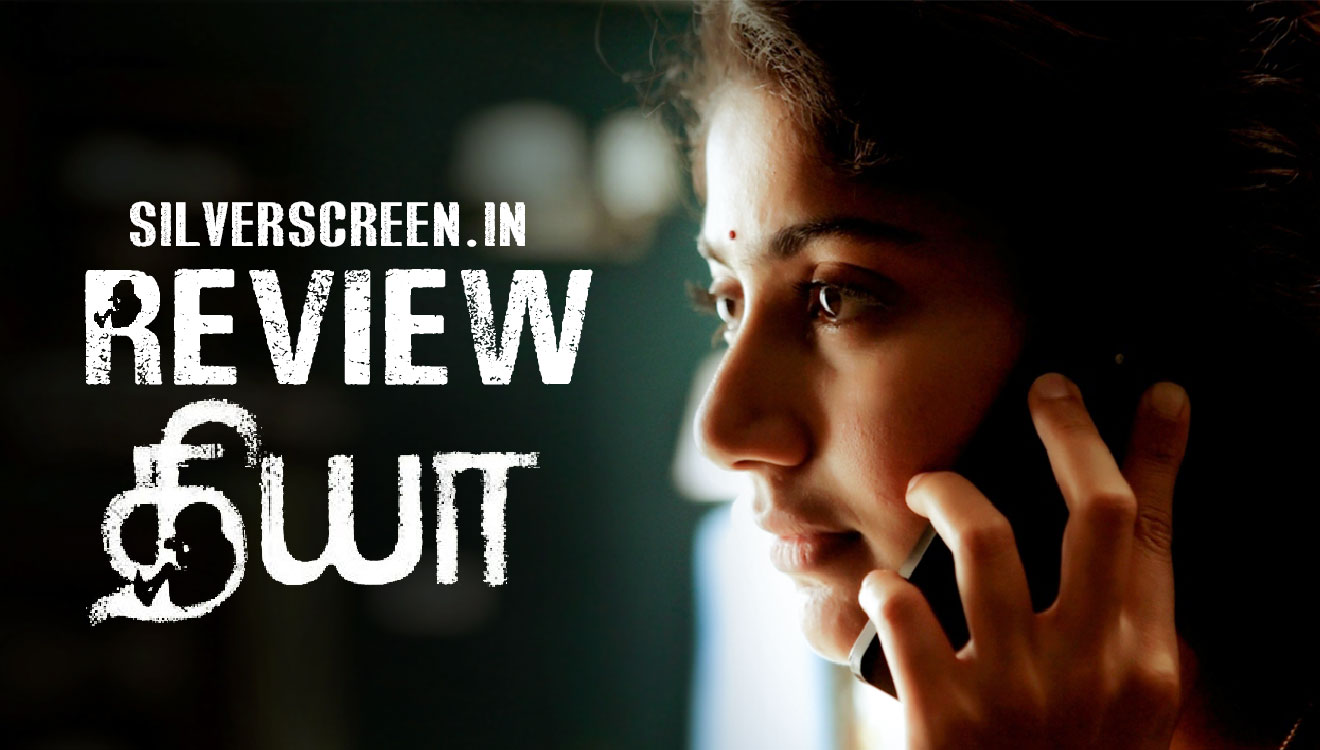Mahanati recently won the Equality In Cinema Award at the Indian Film Festival of Melbourne. Generous to a fault, indomitable on screen, yet so vulnerable in real life – that was Savitri. Her story for the big screen has been built on facts and some folklore. In this piece, the writer explores why the biopic, directed by Nag Ashwin, resonated with the audience, going against the market trend.
Murali Mohan’s voice shudders as he recalls the fateful day in 1997 when his life’s savings were wiped out. The now-affluent TDP MP and the real estate baron was an aspiring producer back then. In what was considered a coup, he had raced ahead of established bigwigs to land the distribution rights of the much-hyped semi-biopic Iddaru – the Telugu version of Mani Ratnam’s Iruvar. It ran for exactly one show. “Modhati roju noon show ke theesesaru (it was removed before the noon show the first day),” recalls Murali Mohan. At 53, he lost everything he had ever earned.
The market for biopics in Andhra Pradesh has not been hot since. It is in this background that the humongous success of Mahanati needs to be processed. Where Mani Ratnam failed and Nag Ashwin succeeded was in infusing the film with soul, a searing emotional honesty, even if the framing of some scenes and the arc of the reporter character played by Samantha was a hat tip to Ratnam.
Mahanati, a largely true-to-life attempt, portrays a certain image of Savitri – an endearingly flawed artist, always aware of the possibilities of life, determined to make the best of the vagaries of fame, love, relationships and life itself till the bitter end.
Leading the list of people who impacted and defined her choices was Gemini Ganesan, who was instrumental in identifying her as a promising talent, and later became her confidant, friend, lover and beau – the man who dominated her adult life and whose absence defined her deterioration. Without his fiscal awareness, she mismanaged her wealth to financial ruin; his adultery left an indelible scar, and accelerated her decline.
It is here that Nagi, as he is popularly called, departs from the existing lores on ‘Gemini’, who is, in the eyes of a Telugu Savitri fan, a villain and schemer, the much older man who exploited her rustic innocence and who misused his position as mentor to seduce her into marriage, even while being already married and in an extramarital affair. The director invests a lot in exploring the contours of this unusual, often troubling, relationship, especially by casting Dulquer Salmaan in the role.
While he toils gamely to play the much celebrated and charming actor, it helps that Dulquer does not look much older than Keerthy Suresh, who essays the part of Savitri. This reduces the impact of the arguably predatory nature of the relationship, while the actor’s charm and reputation as a darling among fans lends it legitimacy.
Gemini expertly plays on the young girl’s doubts, insecurities and psychological needs. He teaches her how to learn a new language from people rather than books; charms her into fun outings, helps her fearlessly drive cars at high speed, and, when he observes her longingly see kids carried around by their father, a lacuna in her life, he does that too! She is charmed into a blissful romance.
The relationship goes through ups and downs – culminating into her descent into alcoholism – and it looms large in her mind even on her last day as a cognisant adult. She wistfully watches as ‘Vaarayo Vennilave’, a song from Missiamma, the couple’s most famous movie together, plays on television in her hotel room, minutes before she slips into a coma.
While the Ganesan family seems to have reacted coldly to the biopic, complaining about the depiction of their patriarch as a philanderer and betrayer of Savitri’s trust, Nagi has, in fact, been sympathetic to the character. We see Ganesan trying to reconcile, but she refuses to take him back.
Earlier, her family life progresses parallel to her professional success. Producer Chakrapani persuades her to return to films after marriage; this leads us to the creation that marked a high in her career – Maya Bazaar. This part of Mahanati shows how well the team has recreated iconic moments from Savitri’s phenomenal career. Keerthy Suresh strikes gold, retracing Savitri’s steps as she follows Ranga Rao to imbibe his gestures, before her Sasirekha imitates his Ghatotkacha in an unforgettable scene.
Mohan Babu as Ranga Rao exudes a warm, paternal vibe, choosing wisely to perform as the off-screen, warm and calm Ranga Rao, instead of the animated reel version. He offers another insight into Savitri’s eternal quest for paternal love. After all, the journalist’s search for Savitri’s story begins with the quest to find the mysterious ‘Sankaraiah’, who is mentioned in one of her last letters. Throughout the film, we see this yearning surface itself from time to time.
In the film, during the making of Gorintaku, where she essays a cameo in the title song, a rundown Savitri is neglected at lunch. Ranga Rao (this incident actually happened with actor Gummadi Venkateswara Rao; Ranga Rao died long before the making of Gorintaku), her senior co-star, chides the staff into serving her.
The film also documents Savitri’s limitless generosity and humane spirit. From donating the few annas in her purse earmarked for a rickshaw trip to school and walking the route as a child to pawning her sari in her years of decline to gift money to a taxi driver for his daughter’s wedding, she keeps giving. Even to the fan who becomes her personal assistant and swindles her. She can only smile at him even when she walks and he gets into a car.
One of the interesting features of Savitri’s place in the collective conscience of the Telugu audience is the uncritical acceptance despite many of her actions being in contrast to the expectations of society – be it her breaking another woman’s home or her equation with her children, which may have bordered on self-indulgent neglect.
Mahanati shows how she stoically accepts the fact that help is not forthcoming even from those whom she once helped. She refuses to blame anyone.
In a poignant listen, a festival-special radio programme presented by Savitri towards the end of her life provides a glimpse of the quintessential performer, who, even in that restricted format, enthusiastically focusses on entertaining her audience, consciously looking to make the programme worthwhile for the listener. We now know those were miserable days for her, but listening to her, you feel it is the same little girl who arrived years ago at her pedda nana’s house, brimming with talent to entertain and a charm to influence her environment to do what she felt was right.
Till the end, she remained that girl from Vijayawada, who knew she was special even if circumstances placed her with modest means or unsympathetic elders, guardians and aides.
This is the Savitri who lives on in the Telugu audience’s mind, someone who, amid all her hardship, never hinted to her suffering, and continued to find ways to shower gifts on people around her and her audience. It was her death that threw the spotlight on some of these unsavoury episodes.
In tapping the story of a charming, talented, large-hearted, but ultimately flawed individual, Nagi has produced a passionate and heartfelt tribute.
Recommended
Sandwiched precariously between the intended superstar summer blockbusters of 2018, Mahesh Babu’s Bharath Ane Nenu and Allu Arjun’s Naa Peru Surya, Mahanati critically outperformed both, and commercially outlasted the latter, while going toe-on-toe with the former.
As in life, Savitri’s biopic challenged and stood on an equal footing with the male superstars of the times.
*****
The author can be found on Twitter at @nom_d_plum. Read: Understanding Savithri: The Mahanati Created By Urban Legends.
.



